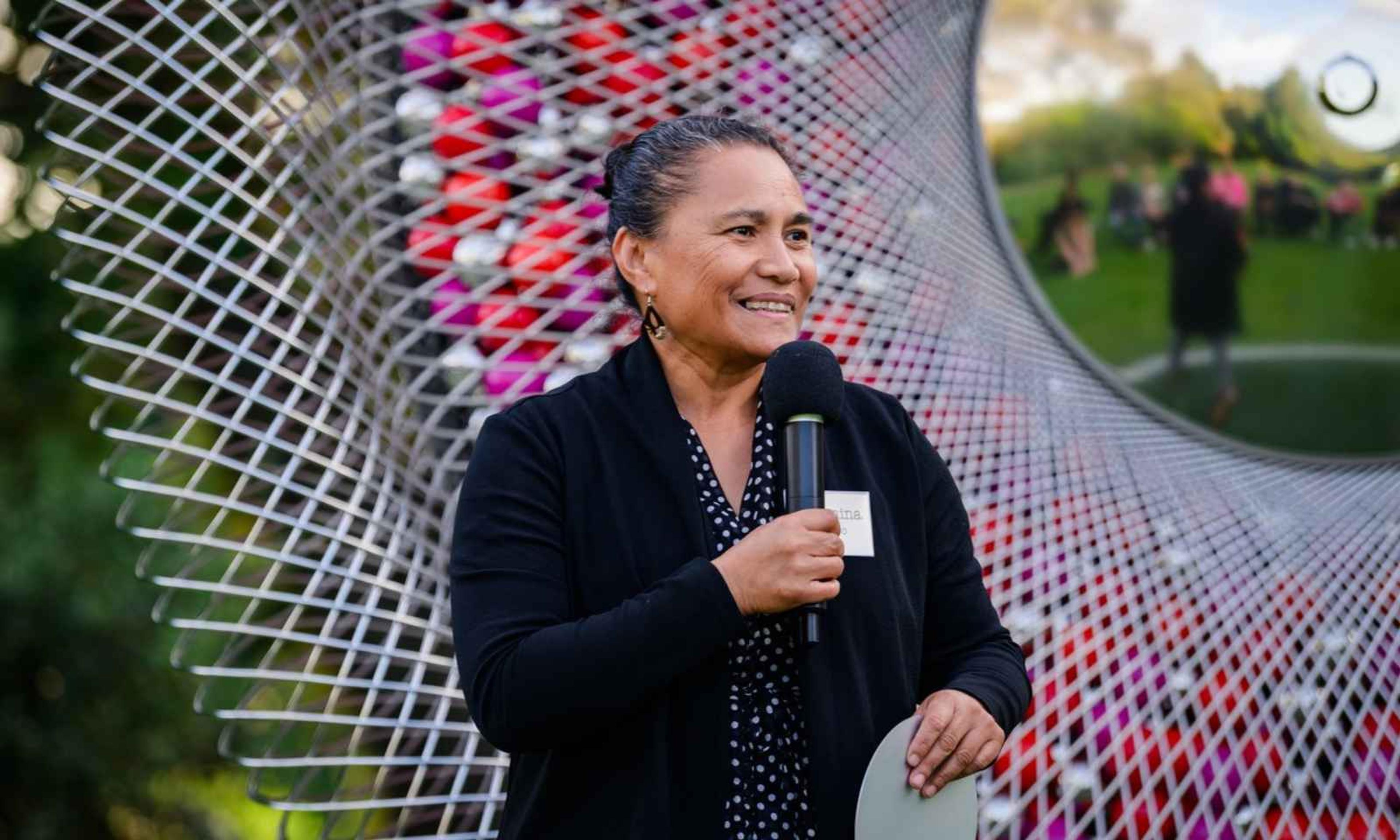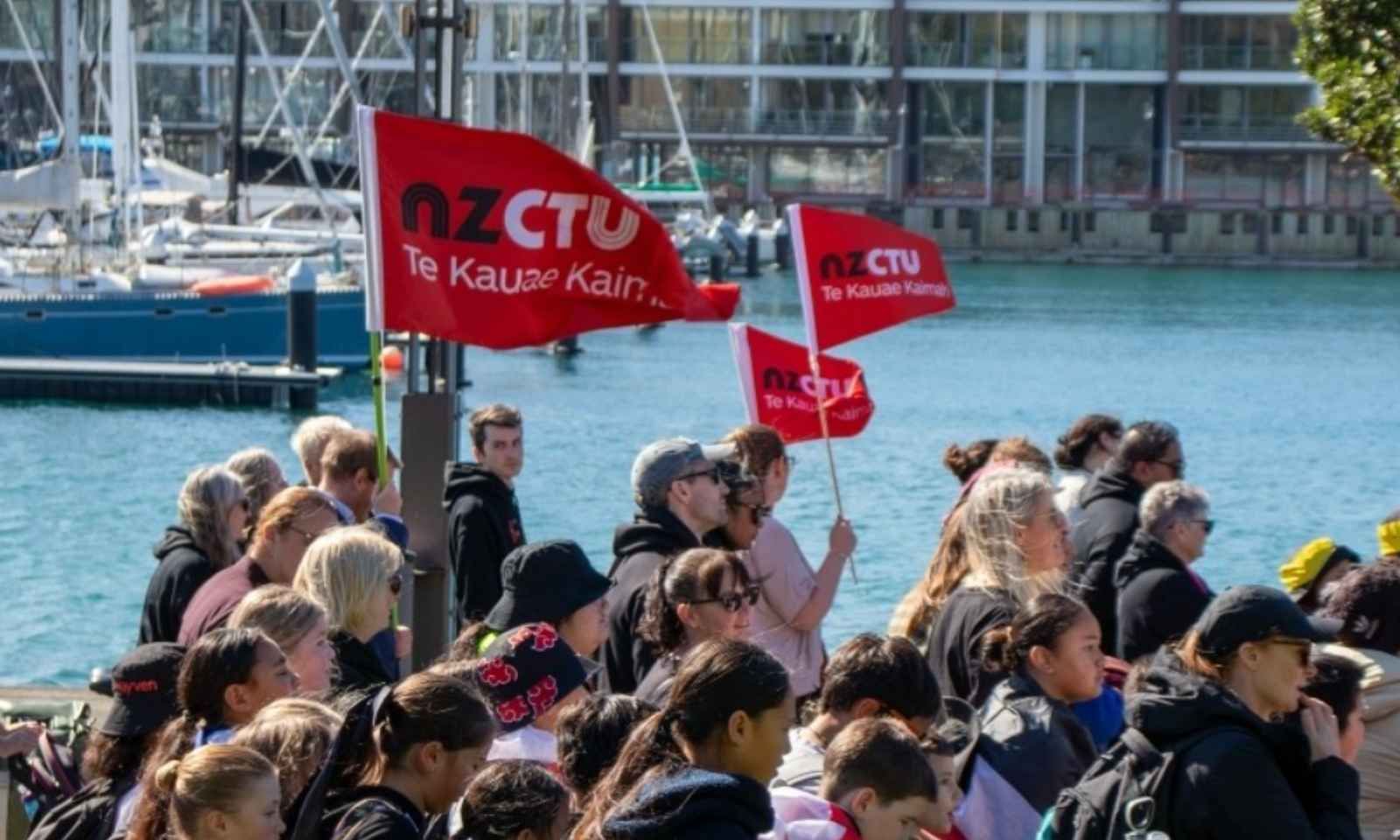

Saunoamaali’i Dr Karanina Sumeo is the former Equal Employment Opportunities) Commissioner for the NZ Human Rights Commission and was in the role from 2018 until last year.
Photo/Supplied
Pasifika ‘working for free’ due to unfair pay gap: Calls for action amid legal changes
Workers' advocate Saunoamaali’i Dr Karanina Sumeo warns that recent amendments to the Equal Pay Act have widened wage disparities in Aotearoa.



The skin cancer Pacific people rarely get but die from more often

Loving your curls: A starter guide to caring for your luscious locks



Pacific travellers face high costs and strict rules under US visa bond expansion

The skin cancer Pacific people rarely get but die from more often

Loving your curls: A starter guide to caring for your luscious locks

A Pacific advocate warns that amendments to the Equal Pay Act have made it harder for Pacific women in essential sectors such as health, care, and education to challenge unfair wages.
Earlier this year, the Equal Pay Amendment Bill was passed urgently, altering eligibility criteria so that occupations must be at least 70 per cent female for a minimum of 10 years. The amendments also allow for phased pay rises while cancelling ongoing cases.
Saunoamaali’i Dr Karanina Sumeo, the former Equal Employment Opportunities (EEO) Commissioner, told PMN News that the policy shift has denied Pacific men and women their lawful right to fair pay.
Her comments follow findings from the New Zealand Council of Trade Unions (NZCTU), which reveal that Pacific people are effectively working for free for the rest of the year compared to Pākeha men, starting on 15 October.
“The council has looked at the average hourly rate that people are paid for their work compared to right across all the different industries,” Saunoamaali’i says.
“It’s calculated that the hourly rate that Pacific women are at is generally lower when compared to other ethnic groups such as European, Asian and Māori.

The New Zealand Council of Trade Unions Te Kauae Kaimahi brings together over 320,000 New Zealand union members in 27 affiliated unions. We are the united voice for working people and their families in New Zealand. Photo/Supplied
“That’s why Pacific people are now working for free because we’re missing out on the pay difference between us and Europeans.”
Despite the findings, Workplace Relations Minister Brooke van Velden rejects claims that the government has widened inequities.
She says the government’s efforts to boost business are meant to create more job opportunities with higher salaries.
“Equal pay is here to stay, the government has made that clear. Pay equity is also here to stay," van Velden says.
"Everybody, no matter what gender or ethnicity, should be backing this government to back business because when business has the confidence to thrive and provide more jobs with higher wages, that is good for workers.”

Workplace Relations Minister Brooke van Velden. Photo/Supplied
Van Velden points to recent findings from the Ministry for Women, which indicate that the gender pay gap is its lowest since records began in the 1980s, - a decrease from 8.2 per cent in the June 2024 quarter to 5.2 per cent in the June 2025 quarter.
The decline is the first statistically significant reduction since 2017.
Data also shows that women’s median hourly earnings have risen to $33.76 in the past year, although Minister for Women, Nicola Grigg, acknowledges that pay gaps remain wider for women from some ethnic groups.
Grigg says more resources will be launched in the upcoming months to address the ethnic pay gaps.
Green MP Teanau Tuiono supports Grigg’s statement, saying that pay gaps still exist for Pacific women. He points to the 33 pay equity claims that were cancelled after the amendments to the Equal Pay Act, which he argues stripped away a key tool for raising wages for women in low-paid, female-dominated sectors.
“There is still a lot of work to be done,” Tuiono says. “So it's all very well for us to throw some numbers around, but we know that on the ground that workers in general are hurting, but Pacific women in particular.”
Watch Teanau Tuiono's full interview below.
Saunoamaali’i criticises the government for rushing the changes without public consultation.
She urges the Pacific community to vote in the upcoming elections to elect leaders who will advocate for their interests.
“I'm very hopeful because of the uprising and the anger that Pacific people in our workforces and in Parliament are standing up,” she says.
“We are no longer the quiet, courteous Pacific people who are grateful to be here. This is our country, this is our home. We are contributing at all levels of society. That's what gives me hope.”